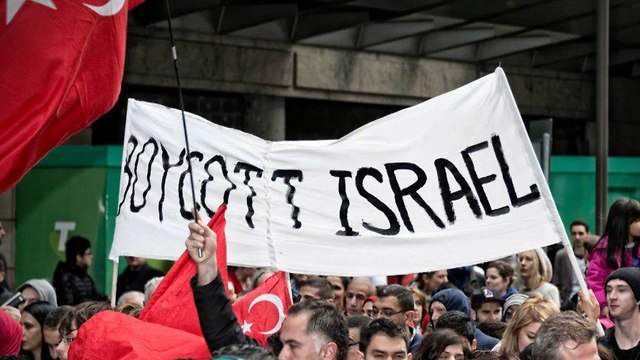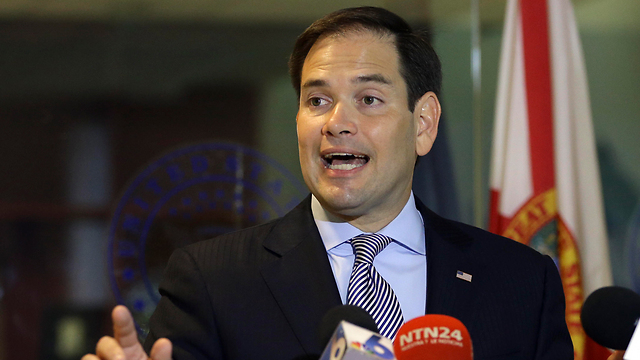
The bipartisan package backed by Senate Majority Leader Mitch McConnell, R-Ky., had initially drawn widespread support ahead of Tuesday's vote. It included measures supporting Israel and Jordan and slapping sanctions on Syrians involved in war crimes at a time of growing unease in Congress over the Trump administration's shifts in the region. But Democrats are split over the addition of Republican Sen. Marco Rubio's "Combating BDS Act," which seeks to counter the global Boycott, Divest and Sanctions movement against Israel over its treatment of Palestinians and the settlements.
For now, the package has stalled on a vote of 56-44, not enough to clear the 60-vote hurdle needed to advance.
Coming amid the partial government shutdown, Democrats said they will block the bill until government is reopened. Senate Minority Leader Chuck Schumer opposed proceeding to the legislation. Other Democratic senators who supported the substance of the bill followed suit.
Sen. Ben Cardin, D-Md., tweeted that the Senate "should not take up any bills unrelated to reopening the government" until the shutdown is resolved.
Republicans see an opening to focus on newly elected House Democrats, including the country's first Palestinian American woman in Congress, Michigan Rep. Rashida Tlaib, who has spoken about the rights of Americans to support the BDS issue.
"This is the US where boycotting is a right & part of our historical fight for freedom & equality," Tlaib said in a weekend tweet. "Maybe a refresher on our US Constitution is in order, then get back to opening up our government instead of taking our rights away."
Israel sees a growing threat from the BDS movement, which has led to increased boycotts of the Jewish state in support of the Palestinians. A Woodstock-style concert was canceled and some companies stopped offering services in the West Bank settlements. That has led to a "boycott of the boycotts" as Israel pushes back against those aligned with BDS.
In support of Israel, Rubio's bills would affirm the legal authority of state and local governments to restrict contracts and take other actions against those "engaged in BDS conduct." Several states are facing lawsuits after taking action against workers supporting BDS boycotts of Israel.
Opponents say Rubio's measure infringes on free speech. Sen. Bernie Sanders, I-Vt., tweeted, "It's absurd that the first bill during the shutdown is legislation which punishes Americans who exercise their constitutional right to engage in political activity. Democrats must block consideration of any bills that don't reopen the government. Let's get our priorities right."
But Rubio's office says the bill allows the governments "to counter economic warfare against Israel."
Rubio, a Florida senator, said in a series of tweets, including one pointed at Sanders and Tlaib: "The shutdown is not the reason Senate Democrats don't want to move to Middle East Security Bill.... A significant # of Senate Democrats now support #BDS & Dem leaders want to avoid a floor vote that reveals that."
Both sides were squaring off ahead of Tuesday's votes. A coalition of civil liberties and liberal Jewish groups, including the American Civil Liberties Union and J Street, was working to defeat the legislation, while the influential pro-Israel AIPAC supports it.
"Any contention that the bill infringes upon First Amendment rights is simply wrong," said AIPAC's Marshall Wittman by email. "It ensures Israel has the means necessary to defend itself-by itself-against growing threats and helps protect the right of states to counter boycotts against Israel."
J Street's President Jeremy Ben-Ami said in a statement: "While millions of Americans suffer from the effects of the ongoing government shutdown, it's outrageous that Senate Republican leaders are prioritizing legislation that tramples on the First Amendment and advances the interests of the Israeli settlement movement. Not a single Democrat should vote to enable this farce."


















